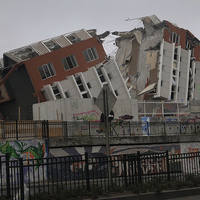Between Iceland's Eyjafjallajokull volcano and the oil slick in the Gulf, everybody seems to have disasters on the brain lately. Some of it stems from the nonstop global media coverage, while a good portion relates to our growing awareness of climate change. But a lot of this heightened anxiety is simply misplaced. We don't live in an increasingly dangerous world, whether you're talking wars, terrorism, disasters -- or just the weather. In fact, we live in the safest times yet known to humanity. We just choose not to see it that way for a variety of reasons.
First, we love to blame our leaders for everything, preferring fantastic tales of dark conspiracies to honest descriptions of prosaic failures -- whether theirs, ours, or the system's. The bigger the screw-up, the more some people desperately need to believe that the U.S. government planned it all! Why? They prefer that simplistic belief to the real-world complexity of events and their causality. They like their "angry God" to be as close as possible.
Second, we hold onto old fears, piling new ones on top of them like so many condiments. We haven't suffered a great-power war in 65 years, thanks to the deterrent offered by nuclear weapons, and yet we still live in almost mystical fear of one. State-on-state war has virtually disappeared, leaving us with just civil strife and transnational terrorists -- i.e., the leftovers. But our political discourse and media narratives continue to be dominated by great-power war (China) plus regional rogues (Iran and Venezuela) plus terrorists lurking around every corner. For 40 years, we've been told by sweaty-browed experts that the world is on the verge of "dozens of new nuclear powers," and yet, the nuclear club still hasn't broken into the double-digits.

